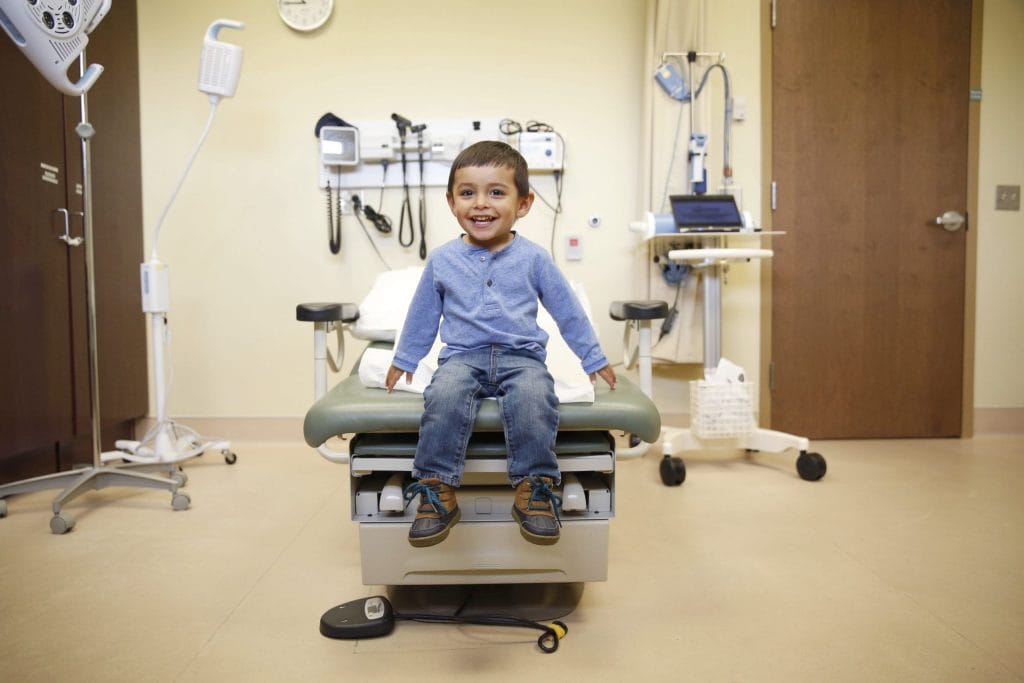
Good sleep is essential for healthy child development. The importance of sleep for children extends far beyond simply feeling rested. Adequate sleep supports growth, cognitive development, emotional stability, and immune function.
Conversely, poor sleep can lead to persistent health issues. Undiagnosed sleep disorders can result in ongoing health problems and, if left untreated, are frequently associated with long-term issues like obesity, anxiety, depression, and behavioral disorders. Recognizing and addressing sleep problems early can prevent these complications and support a child’s ability to thrive in school, at home, and in social settings. Routine pediatric check-ups can help identify and manage sleep problems early, supporting overall health and development.
Common Pediatric Sleep Disorders
Sleep disruptions are common, but persistent issues may indicate underlying sleep disorders in children. Here are some of the most prevalent issues:
- Insomnia occurs when a child persistently has difficulty falling or staying asleep.
- Sleep apnea involves repeated interruptions in breathing during sleep, often due to blocked airways.
- Restless leg syndrome causes uncomfortable sensations in the legs, leading to an irresistible urge to move them.
- Night terrors and nightmares differ in that night terrors involve intense fear and agitation without full awakening, while nightmares are vivid, frightening dreams that wake a child.
- Sleepwalking happens when a child walks or performs complex behaviors while still asleep.
Understanding these conditions helps parents and guardians seek timely interventions and supports overall child health.
Signs and Symptoms Parents Should Watch For
The ability to recognize the signs of sleep disorders can significantly impact treatment outcomes. Symptoms vary widely but commonly include:
- Frequent awakenings during the night
- Difficulty falling asleep or staying asleep
- Snoring or noisy breathing
- Excessive daytime sleepiness
- Hyperactivity or irritability during the day
- Bedwetting after previously staying dry
- Unusual behaviors during sleep, such as walking or talking
If these signs persist or interfere with your child’s daily functioning, this may point to an underlying sleep disorder. In such cases, it’s important to consult a pediatrician for proper evaluation and support.

Causes and Risk Factors
Several factors can contribute to sleep disorders in children. Common medical causes include allergies, asthma, and neurological conditions that interfere with breathing or relaxation during sleep. Mental health challenges, such as anxiety, stress, or trauma, can also disrupt sleep patterns, leading to insomnia or night terrors. Even developmental changes, especially during growth spurts or adolescence, can throw off a child’s internal sleep clock.
One of the most talked-about contributors in recent years is the connection between screen time and sleep. Excessive use of phones, tablets, or TVs (especially in the hour before bed) can interfere with the body’s natural production of melatonin, a hormone that regulates sleep. The stimulating content and blue light from screens can delay the onset of sleep, reduce total sleep time, and lower sleep quality. Poor sleep hygiene, irregular routines, and an overstimulating sleep environment are additional risk factors. Understanding and addressing these causes early can help prevent more serious sleep disruptions down the line.
Diagnosis and Treatment Options
If sleep disturbances persist, a pediatrician might recommend a comprehensive evaluation or a child sleep study. This diagnostic tool monitors sleep stages, breathing patterns, movements, and more, allowing precise identification of sleep disorders. Treatment strategies can include the following approaches:
- Sleep hygiene for kids involves establishing consistent bedtime routines and creating a calm, comfortable sleep environment.
- Cognitive behavioral therapy can be effective in treating insomnia and anxiety-related sleep disorders.
- Medication may be prescribed in specific cases, typically as a short-term solution under medical supervision.
- Underlying medical issues, such as allergies, asthma, or other chronic conditions, can be addressed to significantly improve sleep quality.
Regular visits to a pediatrician specializing in pediatric health can effectively manage and treat these conditions, improving overall health and well-being.
Supporting Healthy Sleep Habits at Home
Establishing healthy sleep habits is one of the most effective ways to prevent sleep problems and support your child’s long-term well-being. Consistency, environment, and daily routines all play important roles. A structured bedtime routine for kids helps signal to their bodies that it’s time to wind down and can significantly improve sleep quality over time. From promoting physical health to emotional resilience, healthy sleep starts with daily habits at home.
Here are some simple yet impactful ways to support better sleep:
- Stick to a consistent sleep schedule by having your child go to bed and wake up at the same time every day, even on weekends.
- Create a calming bedtime routine that may include reading, a warm bath, or quiet music.
- Limit screen time before bed, especially in the hour leading up to sleep, to prevent blue light from disrupting melatonin production.
- Make the sleep environment comfortable by reducing noise, keeping the room cool and dark, and removing distractions, such as tablets or TVs.
- Support your child’s immune health, as illness can disrupt sleep. Learn practical tips for staying healthy during flu and cold season.
- Keep up with preventive care, including regular check-ups and immunizations, which can prevent conditions that interfere with sleep.
- Encourage balanced nutrition, including meals with whole foods, fruits, and vegetables, to support stable energy levels and healthier sleep patterns.
- Promote daily physical activity, which helps regulate energy levels and promotes more restful sleep.
By creating a consistent and nurturing bedtime environment, parents can help children fall asleep more easily and wake up refreshed, ready to learn, grow, and thrive.
Prioritizing Sleep for Lifelong Health
Promoting healthy sleep is a collective family effort. Creating routines that involve the whole family enhances the likelihood of adherence and success. Parents serve as powerful role models by practicing good sleep habits themselves, thereby reinforcing their children’s behaviors.
Recognizing and addressing childhood sleep disorders is crucial for their health and development. Parents can significantly influence their child’s sleep quality by understanding common disorders, identifying symptoms early, and practicing robust sleep hygiene habits at home. Regular consultations with pediatricians and timely interventions further ensure children receive comprehensive care, supporting their long-term physical, mental, and emotional well-being.
At Mountain Family Health Centers, we are committed to supporting the behavioral, emotional, and physical well-being of every child in our care. Our integrated care model ensures families have access to compassionate, affordable services (including pediatric medical, behavioral, dental, and pharmacy care) all under one roof.
As a nonprofit, community-led organization, we believe health care is a basic human right. We currently serve over 24,000 patients and are proud to provide whole-person care that meets families where they are.Whether you’re seeking support for childhood anxiety, ADHD, or overall wellness, Mountain Family is here to help. Learn more about our services, find a provider near you, or schedule an appointment today.
